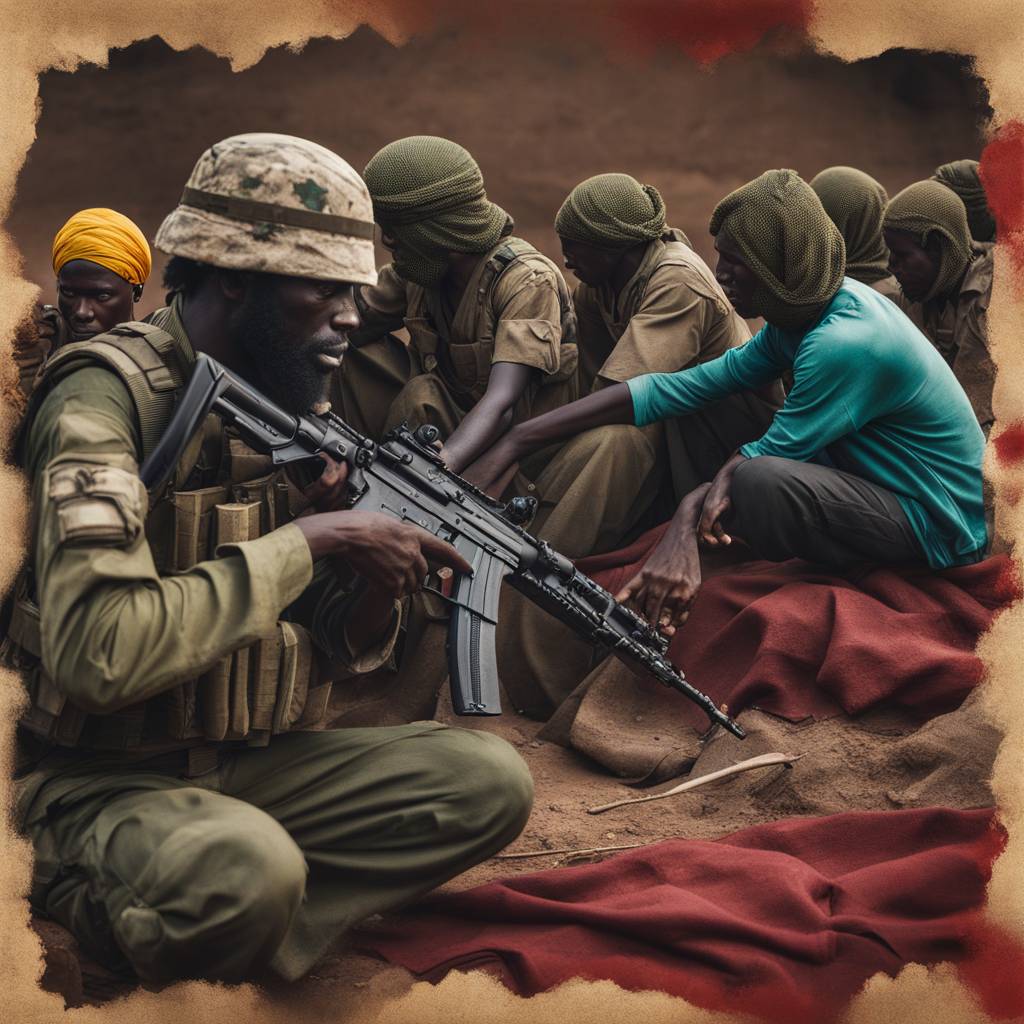Rebels with ties to the Islamic State group have once again struck in the volatile east of Congo, this time killing at least a dozen people in a raid on a rural community near the border with Uganda. The Allied Democratic Forces rebels have long been active in the area, with the United Nations reporting nearly 200 deaths this year. This latest attack saw the rebels setting a local hospital on fire and taking civilians into the bush, prompting a response from the Congolese army that resulted in four attackers being killed and four people being rescued. However, local sources claim that the civilian toll was higher, with at least 17 people, including four children, killed, and another 15 missing after being kidnapped.
The ongoing violence in eastern Congo has been a result of decades of conflict and the presence of numerous armed groups vying for control of valuable mineral resources. Mass killings by rebels are sadly all too common in the region, with over seven million people having been forced to flee their homes as a result, according to the U.N. Bintou Keita, the top U.N. envoy to Congo, has sounded the alarm on the escalating violence, with thousands of human rights abuses, including rapes and gender-based violence, being reported this year alone. The situation in the region remains dire, with civilians continuing to bear the brunt of the fighting and insecurity.
The attack by ISIS-linked rebels once again highlights the threats faced by civilians in eastern Congo, particularly those living near the border with Uganda. The raid on the rural community not only resulted in loss of life but also caused panic and displacement, with survivors fleeing to nearby urban centers in search of safety. The Congolese army’s response was able to neutralize some of the attackers and rescue a few civilians, but the scale of the violence and its impact on the local population remains a cause for concern. The relentless cycle of attacks and counterattacks further entrenches the insecurity and instability in the region.
Efforts to address the root causes of the conflict in eastern Congo, including control of mineral resources and ethnic rivalries, remain crucial in order to bring about lasting peace and stability. The presence of numerous armed groups operating in the area complicates the situation and makes it challenging to ensure the safety and security of civilians. The U.N. and other international actors have a role to play in supporting the Congolese government in its efforts to address the underlying issues fueling the conflict and to provide protection and assistance to those affected by the violence.
The violence and insecurity in eastern Congo have had devastating consequences for the civilian population, with reports of widespread human rights abuses, including killings, rapes, and kidnappings. The U.N. envoy’s warning about the escalating violence underscores the urgent need for action to protect civilians and address the root causes of the conflict. The international community must remain engaged in efforts to support peacebuilding and development in the region and to hold accountable those responsible for atrocities committed against innocent civilians.
As the situation in eastern Congo continues to deteriorate, there is a pressing need for coordinated and sustained efforts to address the root causes of the conflict and to protect civilians from further harm. The attack by ISIS-linked rebels serves as a grim reminder of the ongoing threats faced by the population in the region, and the urgent need for robust and effective responses to ensure their safety and security. The Congolese government, with support from the international community, must work towards establishing lasting peace and stability in the volatile east of the country in order to prevent further loss of life and suffering among the civilian population.













